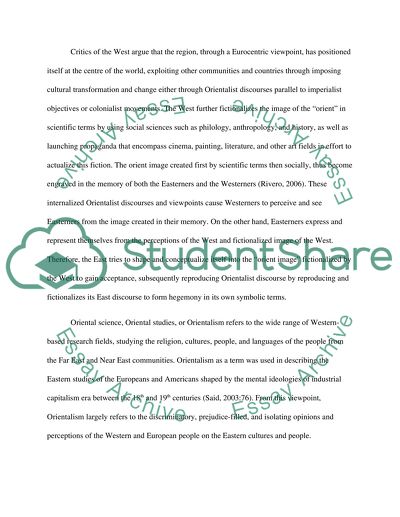Cite this document
(“Concepts of orientalism and self- orientalism are no longer relevant Essay”, n.d.)
Retrieved from https://studentshare.org/journalism-communication/1592181-concepts-of-orientalism-and-self-orientalism-are-no-longer-relevant-to-discussions-of-media-produced-by-non-western-organisations-in-the-global-south-discuss
Retrieved from https://studentshare.org/journalism-communication/1592181-concepts-of-orientalism-and-self-orientalism-are-no-longer-relevant-to-discussions-of-media-produced-by-non-western-organisations-in-the-global-south-discuss
(Concepts of Orientalism and Self- Orientalism Are No Longer Relevant Essay)
https://studentshare.org/journalism-communication/1592181-concepts-of-orientalism-and-self-orientalism-are-no-longer-relevant-to-discussions-of-media-produced-by-non-western-organisations-in-the-global-south-discuss.
https://studentshare.org/journalism-communication/1592181-concepts-of-orientalism-and-self-orientalism-are-no-longer-relevant-to-discussions-of-media-produced-by-non-western-organisations-in-the-global-south-discuss.
“Concepts of Orientalism and Self- Orientalism Are No Longer Relevant Essay”, n.d. https://studentshare.org/journalism-communication/1592181-concepts-of-orientalism-and-self-orientalism-are-no-longer-relevant-to-discussions-of-media-produced-by-non-western-organisations-in-the-global-south-discuss.


